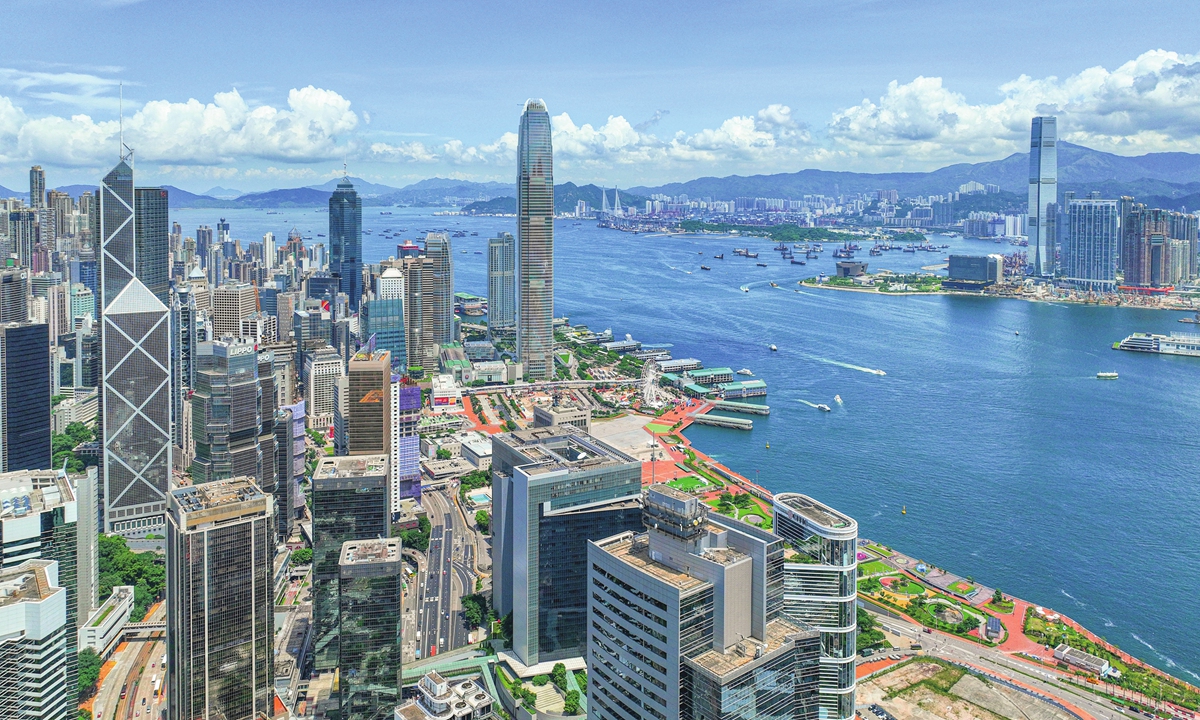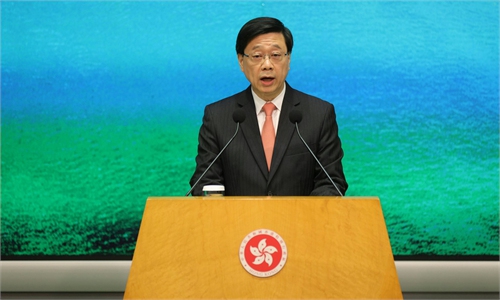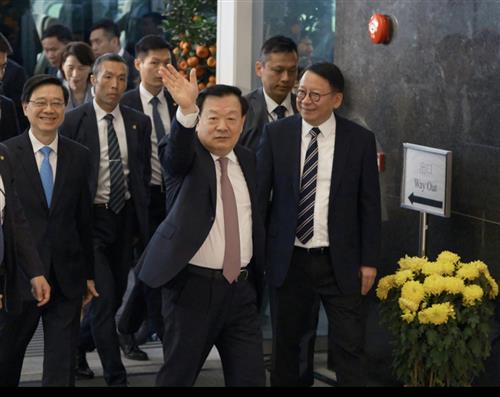Different opinions on Article 23 legislation reflect Hong Kong’s diversity, value of freedom of speech

The city view of Hong Kong
With the public consultation period for the Article 23 legislation ended on Wednesday, local officials said there is a general consensus in Hong Kong society that we must expedite the legislation as soon as possible while the major issues of concern in the legal community include the purpose of the legislation, definitions and penalties of offenses and protection of human rights and freedom, some legal representatives said, noting that those various opinions also reflect the city's diversity and protection of freedom of speech.
In his latest address to a subcommittee on the Article 23 legislation in the Legislative Council (LegCo), Secretary for Justice Paul Lam Ting-kwok said we will provide detailed definitions for some key and important terms in drafting the law including national security, foreign forces and collusion with foreign forces.
Also, offenses will be clearly outlined to specify what actions, circumstances and intentions constitute a crime. Where applicable, we will specify whether there are exceptions or defenses, as well as the conditions that must be met. If an offense has extraterritorial effect, we will also specify the subjects and scope of application of extraterritorial effect, Lam said.
As for penalties, we tend to follow the common law practice of specifying maximum penalties with sufficient deterrent effect in the draft legislation, without prescribing minimum sentences, the official said.
The main concerns of the legal community regarding the Article 23 legislation include the purpose of the legislation, legal basis, legal system and enforcement mechanisms, definitions and penalties of offenses, human rights and freedoms, and the business environment, Willy Fu, director of the Chinese Association of Hong Kong and Macao Studies and vice-president of the Hong Kong Basic Law Education Association told the Global Times on Wednesday.
"Feedback from the legal community has been focused, acknowledging that the Article 23 legislation is a constitutional responsibility of the HKSAR government, and in discussions with foreign chambers of commerce, consulates, and others, they also recognize that," Fu said.
The closing date for the public consultation on the legislation also coincides with the central government's top official overseeing Hong Kong and Macao affairs concluding his seven-day inspection visit to the city.
During his visit, Xia Baolong, director of the Hong Kong and Macao Affairs Office of the State Council, met with legal community representatives, where Victor Dawes, head of the Hong Kong Bar Association said the Article 23 legislation should both safeguard national security and balance the rights of local residents protected by the Basic Law, according to media reports.
Dawes also said during the meeting that the association would submit written opinions on the legislation to the HKSAR government.
In the legal community, we have fully expressed many different opinions, which show that Hong Kong is a diverse society and values freedom of speech, Louis Chen, a member of the Election Committee and general secretary of the Hong Kong Legal Exchange Foundation, told the Global Times on Wednesday.
"Among these opinions, there are major concerns about whether the legislation will affect the business environment of Hong Kong or sabotage the privacy of individuals. But overall, the legal sector is fully supportive for the legislation and has the consensus that this is the constitutional responsibility," he said.
The new law, proposed to be entitled as the Safeguarding National Security Ordinance, aims to comprehensively address national security risks and will play a complementary role to the National Security Law for Hong Kong.
The One Country, Two Systems principle will be kept as a permanent feature, Xia told about 40 local and foreign business chambers in a recent meeting where the Article 23 legislation was also discussed, the South China Morning Post reported on Monday.
Xia also attached great importance to Hong Kong's status as an international city and listened to the opinions of local and foreign chambers of commerce, the media report said.
Xia's visit holds significant implications for the practice of the One Country, Two Systems in Hong Kong, the governance and policies of the HKSAR government in the future, as well as the future development of Hong Kong, Lau Siu-kai, a consultant from the Chinese Association of Hong Kong and Macao Studies who is also a senior policy advisor, told the Global Times on Wednesday.
"His visit comes at a crucial time when Hong Kong is facing severe economic, social, livelihood and developmental challenges, which have become more complex under pressure from the US and some Western countries," Lau said, noting that enhancing the HKSAR government's governance will, therefore, be vital in enabling Hong Kong to better address these challenges and even turn them into opportunities.
"The Security Bureau is actively analyzing all received opinions. The vast majority of opinions support expediting the legislation. Authorities will thoroughly analyze and summarize all feedback and then report to the LegCo, aiming to expedite the legislation as soon as possible," the HKSAR Chief Executive John Lee told media on Wednesday.




